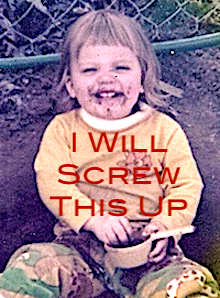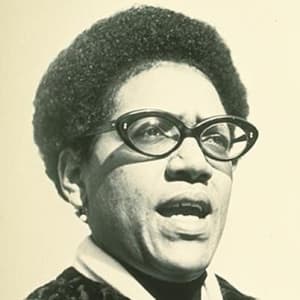Teaching Students That Poetry Is a Necessity
A MiddleWeb Blog

This week it was Audre Lorde’s short, devastating 1985 essay on the necessity of poetry for justice.
I had been reading through poems on several issues of social justice in preparation for this column, uppermost among them climate change. Poets are beginning to bite into climate change robustly now, following the example of their colleagues in speculative fiction (that might be next month’s column) – always a good thing.
Surprisingly, though, I found myself not cheering along. Instead I felt occasionally powerfully irked, especially at some of the poems that required some real thinking and attention. The refrain in my head became: “We don’t have time for that.”
Interesting. I imagine that this is the first time I genuinely understood what some of our concrete-operational middle schoolers might feel when dragged through exegesis of a poem they’re being told is something they need to know. How many of them have concerns that feel far more pressing – from who is sitting with whom at lunch today, right through to whether they’ll have enough to eat that night.
I think this might be a very fruitful litmus question for anything we ELA folks put in front of kids, actually. How will this give, create, or shine a light on authentic meaning for a kid who may not have enough to eat that night?
Audre Lorde approaches this question from the particular perspective of a black woman, saying:

In other words, writing and reading poetry helps us understand what we feel. Feeling is the birthplace of dreaming for a better future, of thought – which in turn is the birthplace of action.
For our kids, this paragraph might be the most accessible encapsulation of the essay, and could serve as a very rich close read before diving into some poems that have inspired or been inspired by social justice. I’d give some quick background information (such as context for Descartes and Audre Lorde’s own lives), followed by one or more of these questions to tackle in pairs, groups, or a Socratic Seminar:
- How does knowing how we feel make us “free”? How would it have made oppressed black women free?
- Using context clues, take an educated guess: what does it mean to “coin” language?
- What is the connection between poetry and freedom for Lorde?
- Lorde calls our awareness of how we feel “revolutionary.” Why do you think she says this?
- When Lorde says “who else will feed [them] the real food…” who is she talking about?
In my own work with poetry in the middle school classroom I was deeply inspired by Nancie Atwell, whose “A Poem a Day” approach informed mine. She also has a gift for choosing quality poems that middle schoolers can hook into easily and see how the poems do the hard work Lorde describes in her essay.
I continually found other excellent examples in YouTube clips of Def Poetry Jam, such as these by Sarah Kay, Alicia Keys, Daniel Beaty, and Taylor Mali. I would also have kids look at the famous “I Have A Dream” speech as poetry, explaining that it was the rhythm and power of MLK’s words that helped a nation understand its feelings about social and racial justice.
The upshot? We should always make room for poetry – in our classrooms and in our lives. Without it, we stumble around a lot in our hearts, in the dark. And we don’t have time for that.
Feature image source




































I love this line,”How will this give, create, or shine a light on authentic meaning for a kid who may not have enough to eat that night?”